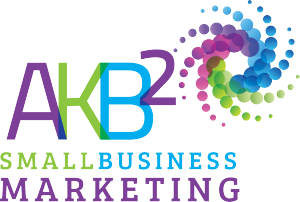As a small business owner any unplanned interruption in your business can be a major set back. A marketing digital scams can be even more impactful.
I recently came across a LinkedIn post from Dennis Yu, CEO of Blitz Metrics, a prolific digital marketer serving some of the biggest brands like Nike, Red Bull, Golden State Warriors and the like.
He is the Billion Dollar Facebook Ads guy and former search engineer at Yahoo.
I learn from him.
But I was struck by what he shared: Here is an excerpt:
“I paid $2,500 to Brandon Deboer, an influencer who runs A Glance Media.
9 months later, he has literally done nothing.
Sometimes I can reach him, where he makes empty promises about he’s about to get started.
We’ve been super patient with him, since we are all human, have personal challenges, and make mistakes.
But today, he blocked me, Isaac Mashman, and other folks– since we are now on to him.
He’s spending our money in VIP parties and living it up on social media, Fyre Festival style.
It’s only after 97 attempts to reach him in the last 9 months that we have to resort to this.
I know, I know– shouldn’t have let it get past 2 attempts, but he had a good sob story each time.
If you’ve been ripped off by an influencer agency, let me know so we can help make it right.
Submit proof to any of us.
We’ll rank on their name, which won’t look good for fake PR agencies– who are supposed to be good at this.”
After I read it, I thought to myself: Scammers come in all shapes and sizes.
Digital scams
They even pose as hot shot ‘professionals’.

Unfortunately, sometimes even the most cautious and discerning among us can fall prey.
Scammers really don’t care who you are. Digital scams
While Dennis may never recover his money or get the service promised, he is fighting back by warning others.
Given his Facebook prowess he is now running a Facebook ads campaign to expose his perpetrator.
I’m sorry Brandon… I think you just ruined your reputation for $2500.
Not smart!
The moral of the story?
Be vigilant and protect yourself from industry scammers.
Here are a few basic red flags to watch for:
1. They engage in high pressure tactics to get you to act quickly.
If you are being pressured to sign a contract or make a payment before you have time to fully consider what’s in the proposal, that could be a red flag. Now, you do have some situations where the ‘Urgency’ strategy is used to sell a coaching program or online course. Take the time to do your research and make informed decisions based on facts.
2. They don’t communicate – to the point of ghosting
As a small business owners or entrepreneurs, we know that communication is key. If the person you are dealing with is not responsive or fails to communicate at all, it is a major red flag.

Scammers tend to ignore your calls or emails, fail to show up to meetings, or disappear for extended periods without explanation. Take this as a sign they have something to hide or not serious about your work.
3. They aren’t transparent with information
Be wary about anyone who is not transparent about their qualifications, experience or can provide references. If you are trustworthy, you will have no problem sharing your credentials.
Scammers tend to avoid answering questions directly, provide vague or incomplete answers, or fail to provide documentation to back up their claims.
4. They are unprofessional in their behaviour
Many scammers make unreasonable demands, use inappropriate language and are disrespectful. If the ‘vendor’ you are dealing with exhibits these kinds of behaviour, it’s a sign. Use these observations to move on.
5. They have poor grammar and spelling
While poor grammar and spelling are not always a sign of a scam artist, it’s a red flag. Perhaps an indication that they are not skilled in their field.

You and I know that many scammers operate in a different country and use fake identities.
Industry scammers like Brandon, ghost you and make up all kinds of excuses.
In conclusion, being aware of these red flags can help you avoid falling victim to a scam artist. Always take the time to do your research, ask questions, and make an informed decision based on the facts. Remember, if something seems too good to be true, it probably is.
6. Promising too much for too little
One of the biggest red flags to watch out for is when a ‘vendor’ promises results that seem too good to be true for a very low cost. This is a sign that they may not have the skills or expertise to deliver on their promises. You usually get what you pay for.
7. Vague or unclear scope of work

If the person you are considering hiring cannot provide a clear and detailed scope of work; it’s a sign they may be unable to deliver on their promises. Proceed with caution.
Let Dennis’s experience be a cautionary tale.
If it can happen to him, it can happen to you.
In conclusion, being aware of these red flags can help you avoid falling victim to a scam artist. Always take the time to do your research, ask questions, and make an informed decision based on the facts.
Remember, if something seems too good to be true, it probably is.
Don’t let your guard down!



